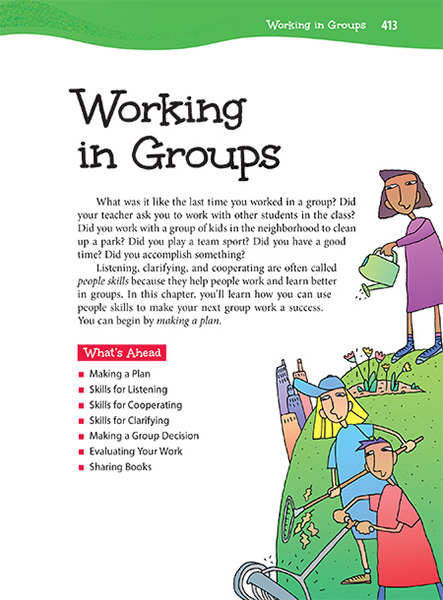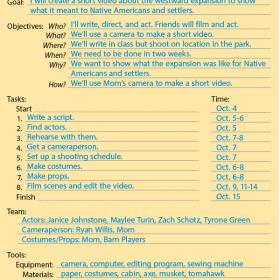Page 413 from

Start-Up Activity
Divide your class into small groups and give each a set of U.S. coins: a penny, a nickle, a dime, and a quarter. Challenge the groups to study the coins in order to find a phrase that they all have in common. The motto E Pluribus Unum (meaning “out of many, one”) appears on all coins.
Once groups have discovered the phrase, discuss how it fits our country’s identity and how it relates to teamwork.
Think About It
“Listen carefully. That’s important. But I believe there are other main ingredients in a good group: to state positive comments before negative ones, to always insist that what one gives as a critique or review is a personal take on something rather than the [final word].”
—Jane Yolen

Start-Up Activity
Divide your class into small groups and give each a set of U.S. coins: a penny, a nickle, a dime, and a quarter. Challenge the groups to study the coins in order to find a phrase that they all have in common. The motto E Pluribus Unum (meaning “out of many, one”) appears on all coins.
Once groups have discovered the phrase, discuss how it fits our country’s identity and how it relates to teamwork.
Think About It
“Listen carefully. That’s important. But I believe there are other main ingredients in a good group: to state positive comments before negative ones, to always insist that what one gives as a critique or review is a personal take on something rather than the [final word].”
—Jane Yolen

